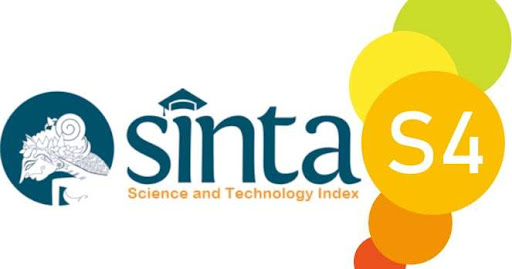The Analysis Of Adjectives Tsurai, Kurushii And Kutsuu In Japanese Language Ruigigo
DOI:
https://doi.org/10.36733/sphota.v15i1.5932Keywords:
adjectives, synonyms, semanticsAbstract
Japanese is a foreign language that has many variations of the lexicon. One of them is the lexicon variation in adjectives. This article discusses the analysis of the adjectives tsurai, kutsuhii and kutsuu in Japanese ruigigo. This study focuses on sentences used by native Japanese speakers. Data collection was carried out through interviews and note-taking techniques. The author conducts interviews directly with Japanese people while recording sentences containing 'tsurai, kutsuhii and kutsuu'. The data were analyzed using a contextual meaning theory approach (Pateda, 2010) by describing them in Japanese sentences. From the data found, the adjectives tsurai, kutsuhii and kutsuu have different meanings depending on the context of their usage. Based on the results of the analysis, in general (1) tsurai expressed a bitter experience, something uncomfortable, lazy to do something, (2) kutsuu stated difficult family conditions, difficult life, doing hard training), and (3) kutsuu expressed severe pain physical and mental discomfort and torture. The results of the study show that each lexicon of 'tsurai, kutsuhii and kutsuu' has almost the same meaning, namely painful or difficult, but has a slightly different usage in other activities.
References
Anggraeni, Yunita. (2012), Analisis Penggunaan Ureshii, Tanoshii dan Yorokobu dalam kalimat Bahasa Jepang. Semarang : Jurusan Bahasa dan Sastra Asing, Fakultas Bahasa dan Seni, Universitas Negeri Semarang.
Basri, Edi Abdul. (2015), meneliti ‘Penggunaan Sinonim Taisetsu, Juuyou dan Daiji’. Surabaya: Fakultas Ilmu Budaya Universitas Brawijaya.
Casio NEW EX-word Electronic Dictionary XD-Y6500BK Black 2016Model (Japan Import)
Kridalaksana, Harimurti. 2008. Kamus Linguistik. Jakarta: Gramedia Pustaka Utama
Nikmah, Jannatun. (2017). ‘Penggunaan Adjektiva Tekitou dan Tadashii sebagai Sinonim dalam Bahasa Jepang’. Semarang: Fakultas Ilmu Budaya Universitas Diponogoro.
Pateda, Mansoer. (2010). Semantik Leksikal. Jakarta: Rineka Cipta.
Putri, Intan Dwi Dahidi. (2018). ‘Sinonim Adjektiva Utsukushii dan Kirei da dalam Bahasa Jepang Kajian Semantik’. Bandung: Sekolah Tinggi Bahasa Asing Yapari-ABA.
Soedjito. 1989. Sinonim. Bandung: Sinar Baru
Shinmura, Izuru. 1973. Kojien. Tokyo: Iwanami Shoten
Situmorang, Hamzon. 2007. Pengantar Linguistik Bahasa Jepang. Medan: USU Press
Sugiyono. (2017). Metode Penelitian Kuantitatif, Kualitatif, dan R&D. Bandung.
Sutedi, Dedi. 2003. Dasar-Dasar Linguistik Bahasa Jepang. Bandung: Humaniora Utama Press.
Tokugawa Munemasa, dan Miyajima Tatsuo. 1973. Ruigigo Jiten. Tokyo: Tokyodo Shuppan













